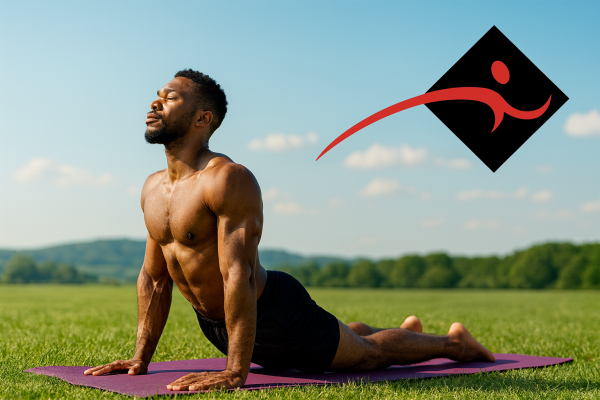Mindful Movement How Yoga Can Elevate Athletic Performance and Speed Recovery

United States, 5th Sep 2025 – Athletes push their bodies to the limit, striving for greater strength, speed, and endurance. Yet, peak performance isn’t only about intense training sessions or competition—it also depends on balance, flexibility, and recovery. One powerful tool many athletes overlook is yoga.
Rooted in mindfulness and purposeful movement, yoga offers more than just stretching. It’s a practice that unites the mind and body, helping athletes perform at their best while reducing the risk of injury and accelerating recovery.
Building Body Awareness Through Mindful Practice
Yoga encourages mind-body connection, teaching athletes to move with intention and focus. By paying attention to breathing patterns and muscle engagement, athletes gain a deeper understanding of how their bodies function.
This heightened awareness can improve coordination, stability, and precision in athletic movements. Whether it’s a runner improving their stride, a swimmer refining their technique, or a weightlifter staying centered during lifts, mindful movement leads to better performance and efficiency.
Increasing Flexibility and Range of Motion
Tight muscles and restricted joints are common in competitive sports, often leading to poor movement patterns or injuries. Yoga directly addresses these issues by lengthening muscles and improving mobility.
For example, hip-opening poses release tension from running or cycling, while shoulder stretches enhance upper body mobility for throwing or swimming. Over time, this increased flexibility allows for smoother, more controlled movements, helping athletes push boundaries without overstraining their bodies.
Building Strength in Stabilizing Muscles
Yoga isn’t just about stretching—it’s also a highly effective way to strengthen stabilizer muscles. Many athletic injuries come from weak supporting muscles that traditional weightlifting doesn’t always target.
Poses like Plank, Warrior II, and Chair Pose build deep core strength and balance. Strong stabilizers enhance joint protection, create better alignment, and provide a powerful foundation for explosive athletic performance.
Enhancing Recovery and Reducing Soreness
Recovery is essential for sustained progress. Yoga promotes recovery by boosting circulation, which helps deliver oxygen and nutrients to fatigued muscles.
Gentle post-workout stretches alleviate soreness and reduce tension, while restorative yoga sessions activate the parasympathetic nervous system, encouraging relaxation and deep healing. These practices allow athletes to train harder with less downtime, supporting consistent growth and performance.
Mental Focus and Stress Management
Sports are as much about mental toughness as physical skill. The breathing techniques and meditative aspects of yoga help athletes stay calm under pressure.
Pre-competition anxiety, in-game stress, and post-game frustration can all be managed through mindful breathing and visualization techniques. By learning to focus and remain present, athletes can sharpen concentration, improve decision-making, and build mental resilience.
Integrating Yoga Into a Training Routine
Adding yoga doesn’t require hours each day. Even two to three short sessions per week can create meaningful benefits.
- Dynamic yoga flows before training help warm up muscles and improve mobility.
- Gentle recovery sessions after workouts or on rest days aid in healing and relaxation.
Working with a yoga instructor experienced in athletic training ensures poses are tailored to specific sports and performance goals.
Conclusion
Yoga is more than a supplement to training—it’s a vital tool for long-term athletic success. By combining mindful movement with flexibility, strength, and recovery practices, yoga helps athletes stay strong, focused, and injury-free.
Whether you’re a professional competitor or a weekend warrior, incorporating yoga into your routine can enhance performance and provide the balance needed to thrive both physically and mentally.
Follow us on Facebook and Twitter, by Sports Doctor Lubbock, Rotator Cuff Repair, and Shoulder Instability
This article is for general purposes only and should not be considered medical advice. If you have any medical issues or questions, consult your physician.
Company Details
Organization: Dr. Kevin Crawford
Contact Person: Office Manager
Website: https://lubbocksportsmed.com/lubbock-sports-doctors/dr-kevin-crawford/
Email: Send Email
Country: United States
Release Id: 05092533515
